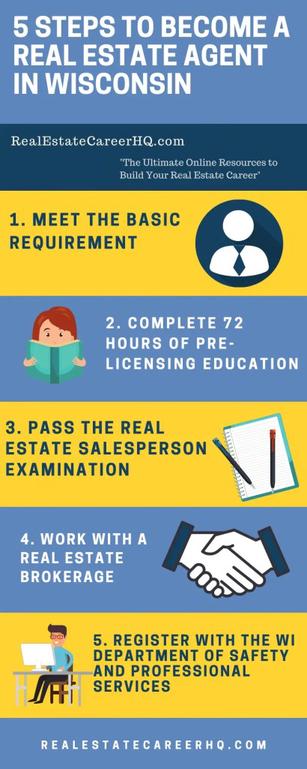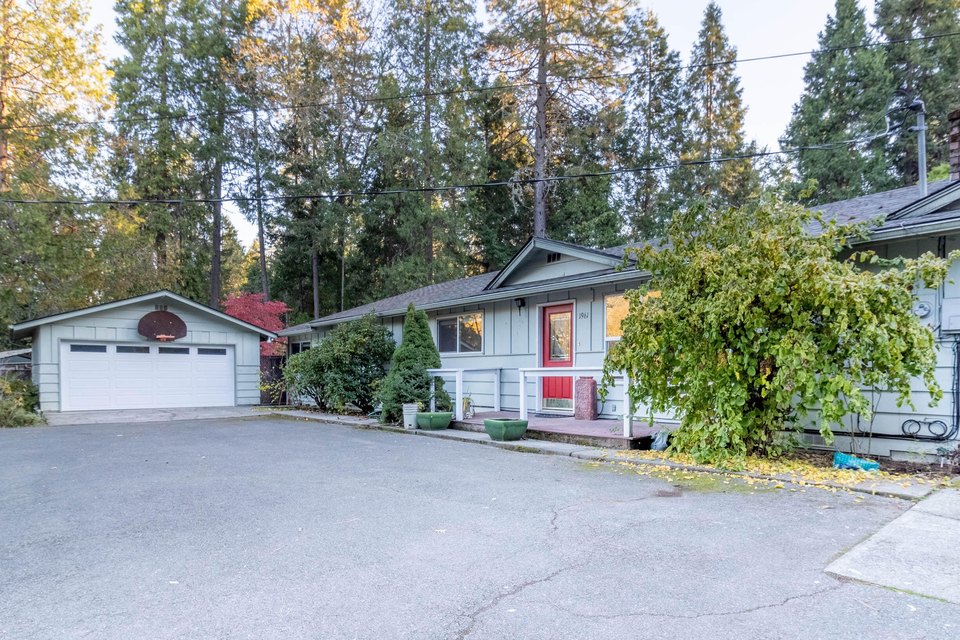
Real estate designations are a great way to set yourself apart from the competition and show potential clients that you're committed to serving their needs. A real estate designation can be earned through specific course work. It is an industry certification that demonstrates your knowledge, skills and experience.
There are many designations for realtors, each one offering its own unique benefits and potential payoffs. The best designations will set you apart from others, allow you to focus on one niche and show your ability to assist clients in real estate.
ABR - Accredited Buyers Representative Designation
This designation can be a great choice for new agents who wish to stand out in a competitive buyer's field. The designation allows agents to be trained to assist buyers at every stage of the home buying process. This includes mortgage financing and closing. ABR can help you stand out among other agents in a busy market. This is especially true in hot markets where each agent is trying to do better than the other.

SRES - Senior Real Estate Specialist Designation
This program is for mature Americans over 50. This program will provide you with information about seniors and how they can meet their housing or retirement goals. You also have access to specialized marketing materials, consumer newsletters and scripts to help clients contact you with questions about downsizing, finding a house closer to their family.
CRS – Certified Residential Specialist Designation
The CRS is a highly coveted designation that signifies a high level of professionalism and expertise in the residential real estate industry. This designation is ideal for ambitious brokers, managers, and sales agents who want to progress in their careers. It requires a certain amount of transaction volume, experience and membership in both the NAR and the RRC.
GRI – Graduate, REALTOR (r) Institute Designation
GRI is a valuable real estate certification. You will receive in-depth training on legal issues, regulatory issues, technology standards, and sales. This certification will let you present yourself as a skilled professional who keeps up to date on the latest industry trends, legal matters, and technological advances.
PMN - Performance Management Network Designation
The PMN is a great real estate certification for agents who are interested in developing their leadership skills. It will help you to develop your negotiation skills, networking skills, referral skills, business planning, systems, and personal performance.

RCE – REALTOR(r), Certified Executive Designation
RCE is the only designation that is specifically tailored for association executives. RCE designationes are motivated professionals who are goal-oriented, have a commitment to continuing professional development, and are committed to their profession.
SRS – Seller Representative Specialist Designation
SRS is another valuable real estate certification that will allow you to better serve your sellers clients by providing additional training in the selling process. This will allow your clients to receive a better service and help them sell faster.
FAQ
How can I fix my roof
Roofs can leak because of wear and tear, poor maintenance, or weather problems. Roofing contractors can help with minor repairs and replacements. Contact us for further information.
How can I get rid of termites & other pests?
Termites and other pests will eat away at your home over time. They can cause serious damage and destruction to wood structures, like furniture or decks. You can prevent this by hiring a professional pest control company that will inspect your home on a regular basis.
What are the three most important things to consider when purchasing a house
The three main factors in any home purchase are location, price, size. It refers specifically to where you wish to live. Price refers the amount that you are willing and able to pay for the property. Size refers how much space you require.
How much money should I save before buying a house?
It depends on the length of your stay. If you want to stay for at least five years, you must start saving now. But, if your goal is to move within the next two-years, you don’t have to be too concerned.
Statistics
- Some experts hypothesize that rates will hit five percent by the second half of 2018, but there has been no official confirmation one way or the other. (fortunebuilders.com)
- It's possible to get approved for an FHA loan with a credit score as low as 580 and a down payment of 3.5% or a credit score as low as 500 and a 10% down payment.5 Specialty mortgage loans are loans that don't fit into the conventional or FHA loan categories. (investopedia.com)
- When it came to buying a home in 2015, experts predicted that mortgage rates would surpass five percent, yet interest rates remained below four percent. (fortunebuilders.com)
- Private mortgage insurance may be required for conventional loans when the borrower puts less than 20% down.4 FHA loans are mortgage loans issued by private lenders and backed by the federal government. (investopedia.com)
- Over the past year, mortgage rates have hovered between 3.9 and 4.5 percent—a less significant increase. (fortunebuilders.com)
External Links
How To
How to Manage a Rental Property
Renting your home can be a great way to make extra money, but there's a lot to think about before you start. We'll show you what to consider when deciding whether to rent your home and give you tips on managing a rental property.
Here are some things you should know if you're thinking of renting your house.
-
What are the first things I should consider? Consider your finances before you decide whether to rent out your house. If you are in debt, such as mortgage or credit card payments, it may be difficult to pay another person to live in your home while on vacation. Your budget should be reviewed - you may not have enough money to cover your monthly expenses like rent, utilities, insurance, and so on. This might be a waste of money.
-
How much will it cost to rent my house? It is possible to charge a higher price for renting your house if you consider many factors. These factors include the location, size and condition of your home, as well as season. You should remember that prices are subject to change depending on where they live. Therefore, you won't get the same rate for every place. Rightmove reports that the average monthly market price to rent a one-bedroom flat is around PS1,400. This would translate into a total of PS2,800 per calendar year if you rented your entire home. Although this is quite a high income, you can probably make a lot more if you rent out a smaller portion of your home.
-
Is it worth it? It's always risky to try something new. But if it gives you extra income, why not? Make sure that you fully understand the terms of any contract before you sign it. Not only will you be spending more time away than your family, but you will also have to maintain the property, pay for repairs and keep it clean. Before you sign up, make sure to thoroughly consider all of these points.
-
What are the benefits? So now that you know how much it costs to rent out your home and you're confident that it's worth it, you'll need to think about the advantages. There are plenty of reasons to rent out your home: you could use the money to pay off debt, invest in a holiday, save for a rainy day, or simply enjoy having a break from your everyday life. It's more fun than working every day, regardless of what you choose. Renting could be a full-time career if you plan properly.
-
How do you find tenants? Once you've made the decision that you want your property to be rented out, you must advertise it correctly. Make sure to list your property online via websites such as Rightmove. You will need to interview potential tenants once they contact you. This will help you evaluate their suitability as well as ensure that they are financially secure enough to live in your home.
-
What can I do to make sure my home is protected? If you fear that your home will be left empty, you need to ensure your home is protected against theft, damage, or fire. You will need insurance for your home. This can be done through your landlord directly or with an agent. Your landlord will likely require you to add them on as additional insured. This is to ensure that your property is covered for any damages you cause. This does not apply if you are living overseas or if your landlord hasn't been registered with UK insurers. In these cases, you'll need an international insurer to register.
-
If you work outside of your home, it might seem like you don't have enough money to spend hours looking for tenants. However, it is important that you advertise your property in the best way possible. It is important to create a professional website and place ads online. It is also necessary to create a complete application form and give references. Some people prefer to do the job themselves. Others prefer to hire agents that can help. It doesn't matter what you do, you will need to be ready for questions during interviews.
-
What happens after I find my tenant?After you've found a suitable tenant, you'll need to agree on terms. You will need to notify your tenant about any changes you make, such as changing moving dates, if you have a lease. Otherwise, you can negotiate the length of stay, deposit, and other details. Keep in mind that you will still be responsible for paying utilities and other costs once your tenancy ends.
-
How do I collect rent? You will need to verify that your tenant has actually paid the rent when it comes time to collect it. You'll need remind them about their obligations if they have not. You can deduct any outstanding payments from future rents before sending them a final bill. You can call the police if you are having trouble getting hold of your tenant. They won't normally evict someone unless there's been a breach of contract, but they can issue a warrant if necessary.
-
How can I avoid potential problems? It can be very lucrative to rent out your home, but it is important to protect yourself. Make sure you have carbon monoxide detectors installed and security cameras installed. Make sure your neighbors have given you permission to leave your property unlocked overnight and that you have enough insurance. Finally, you should never let strangers into your house, even if they say they're moving in next door.